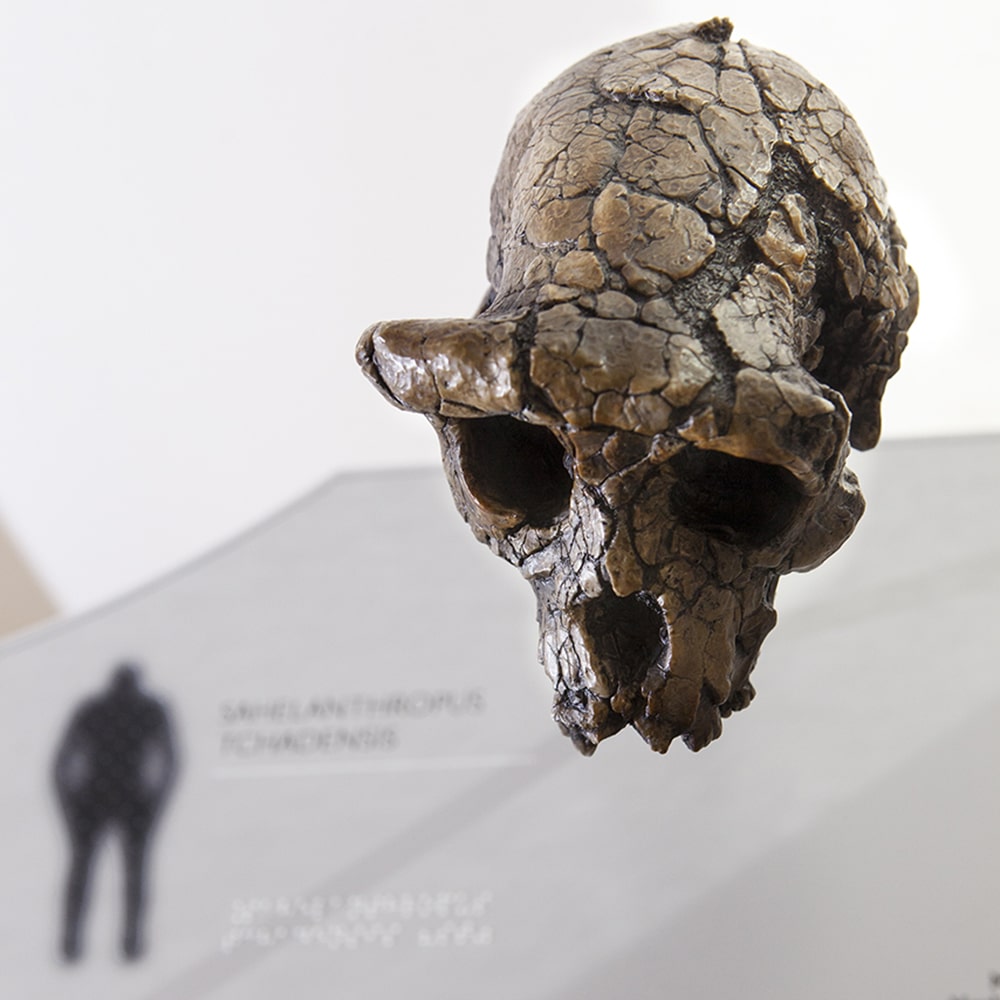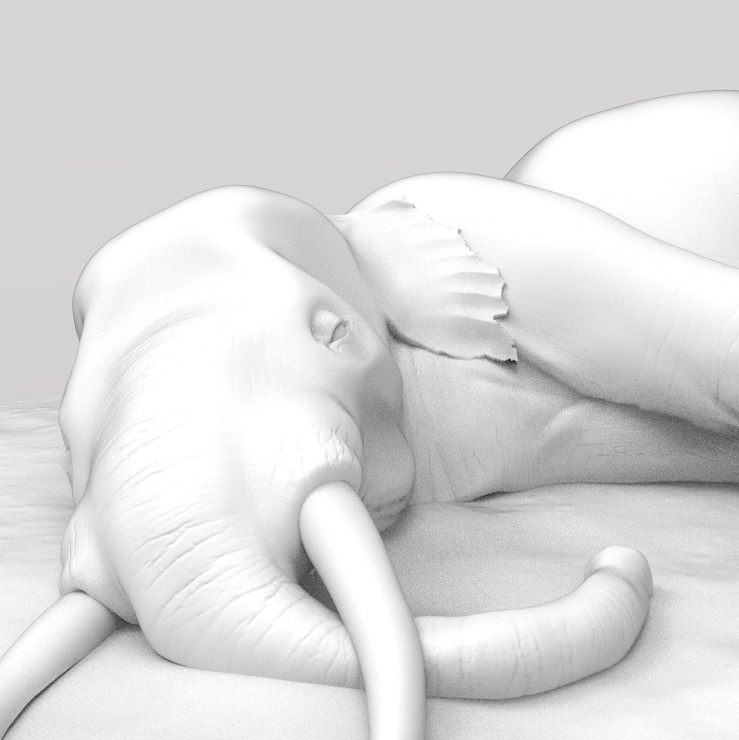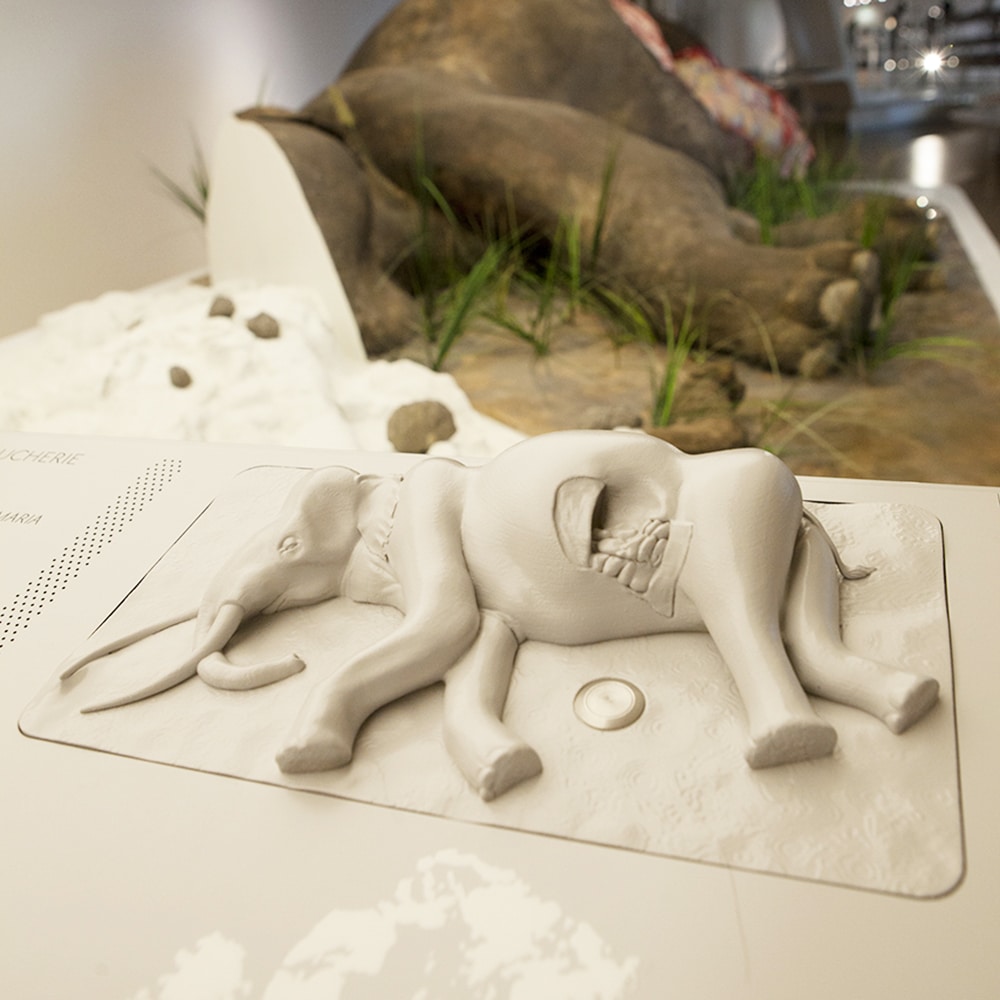Musée de l’Homme – Paris
“Engaging the senses of all” was the guiding principle for the renovation of the Musée de l’Homme (Museum of Mankind) in Paris.
The sensory trail tells a story to sighted and sight-impaired visitors by means of 21 tactile stations.
Client: Musée National d’Histoire Naturelle
Partner: Atelier WAM

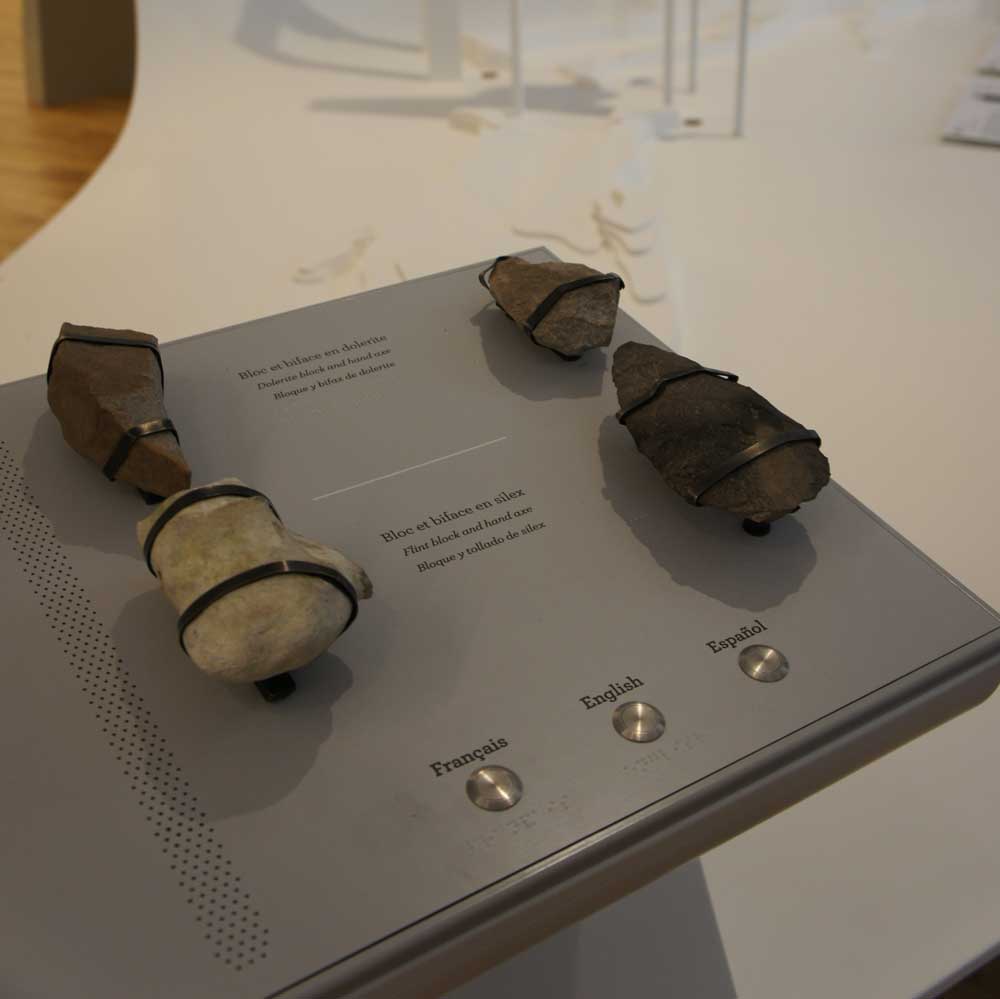
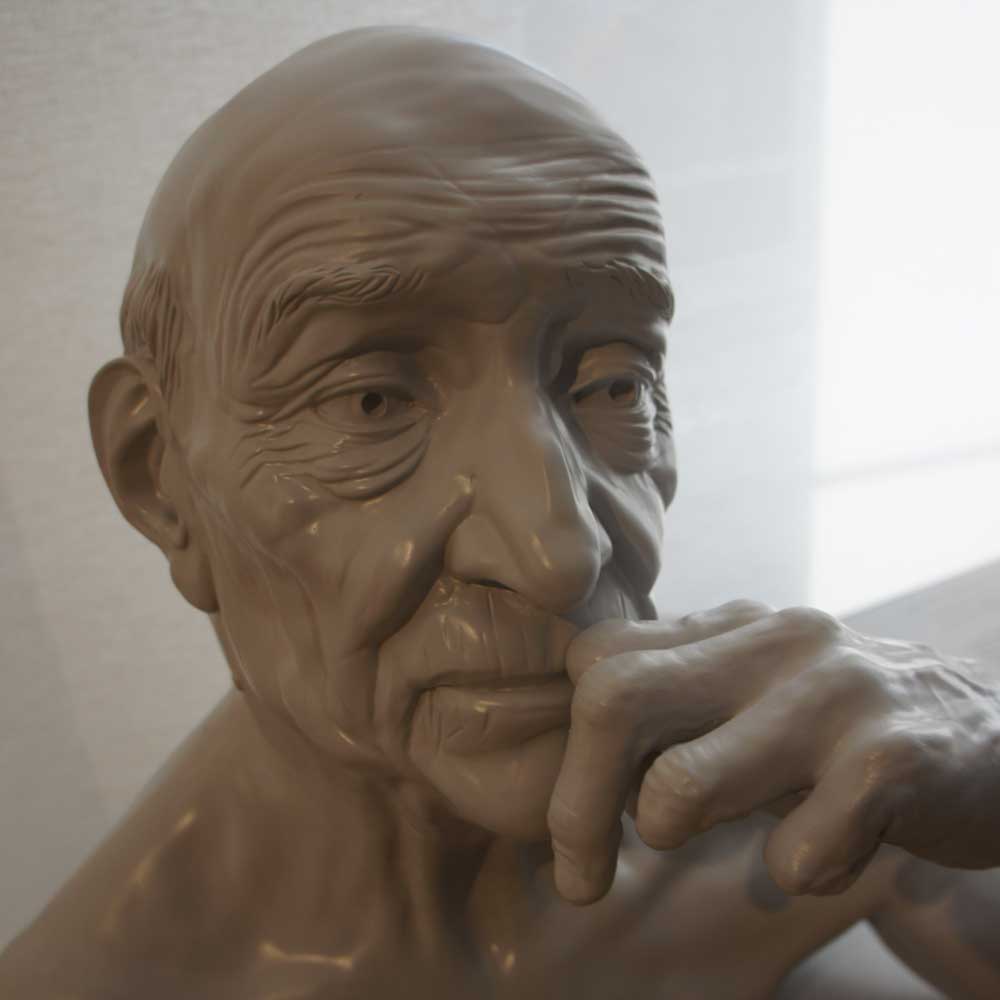
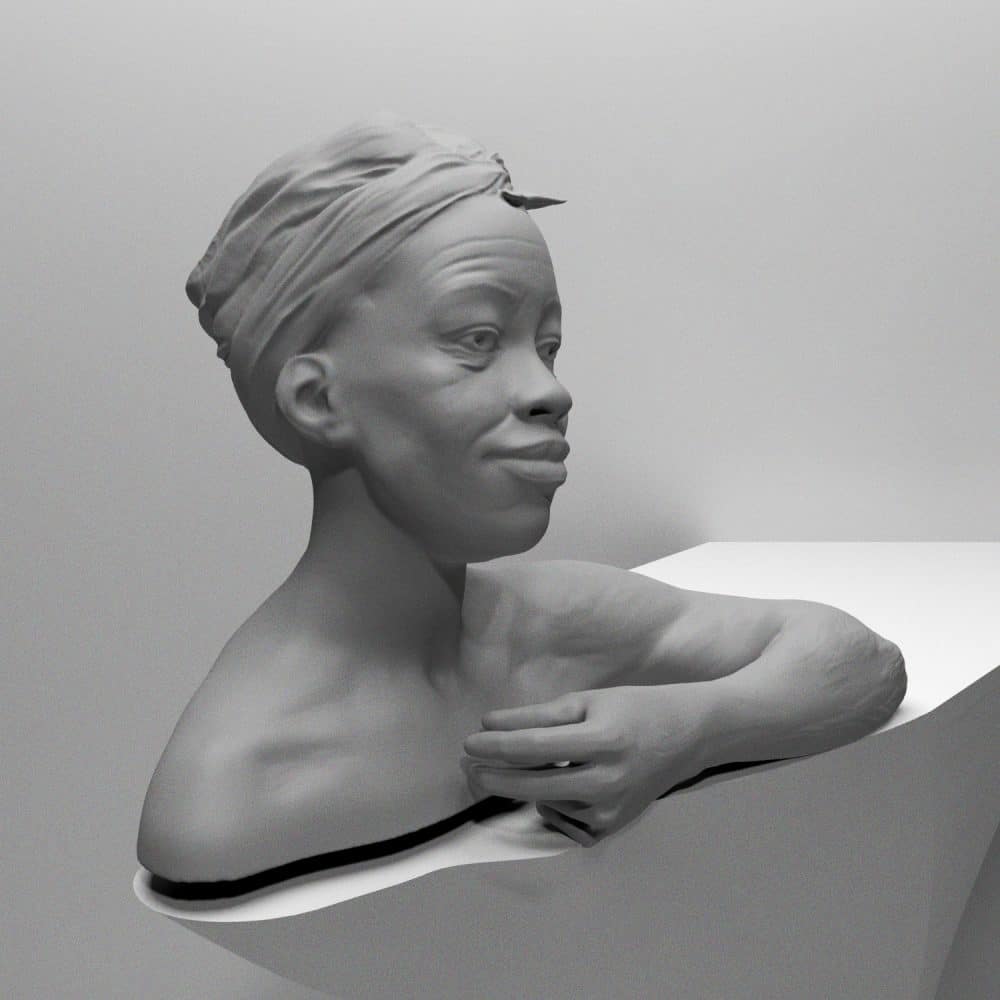
The museum’s sensory trail of 21 sensory stations stimulate the senses of touch, hearing and smell as well as sight. Along the trail, visitors can follow the history of an imaginary family through an audio commentary. The Museum wanted to bring this imaginary family to life in the form of a model representing the human lifecycle. A set of busts, from grandson to grandfather, explains human genetic heritage, looking at hereditary characteristics, as well as the effects of ageing.
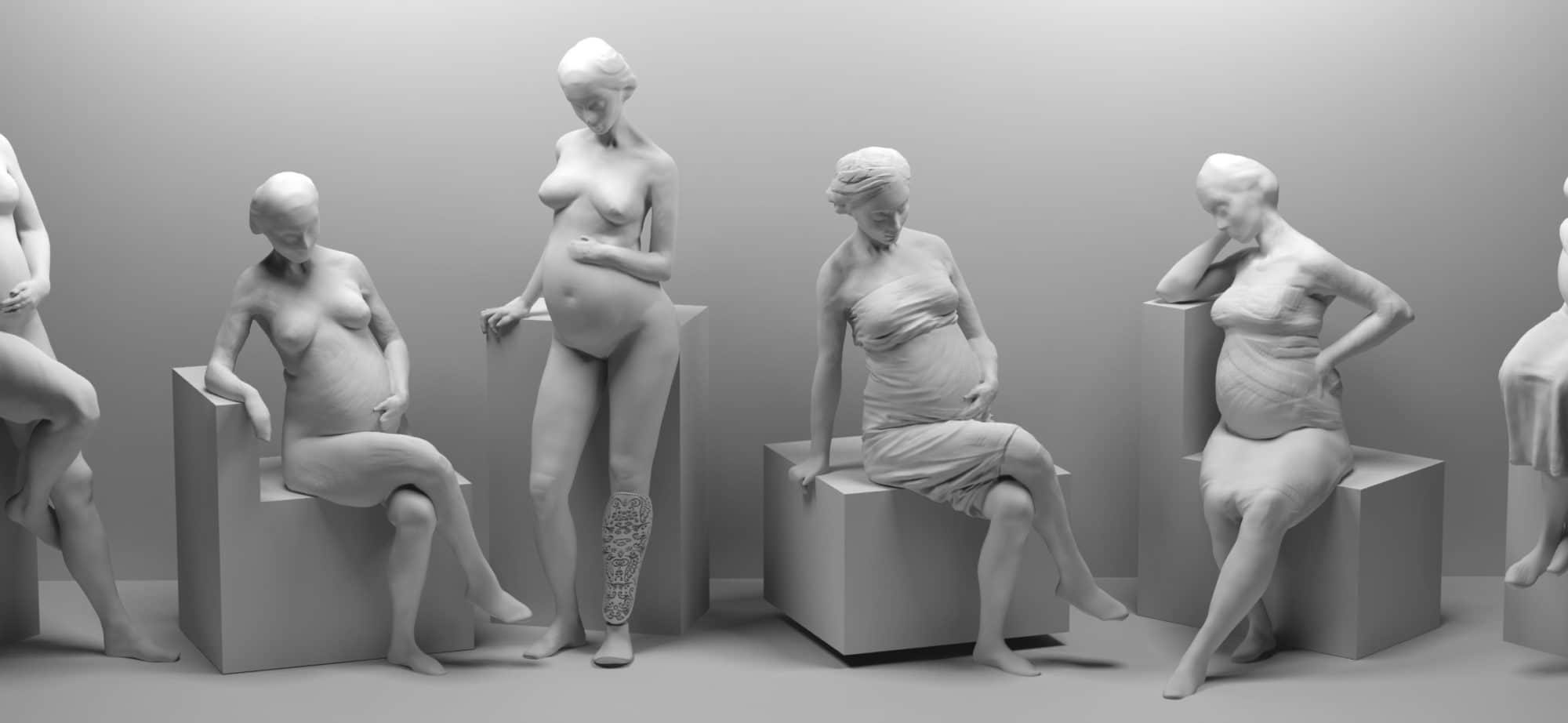
Four tactile stations explain the development of the human skull.
Others display (original) findings of the first tools used by men (sickle, arrows, lance), joined by an explanation of how to use this tool properly.
At the end of the exhibition a series of thematic maps bring close the subject of globalisation and human migration in centuries.
